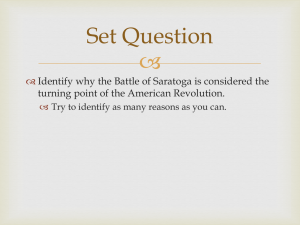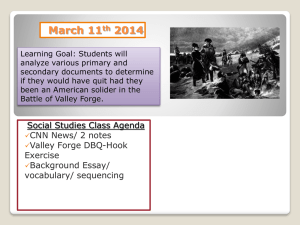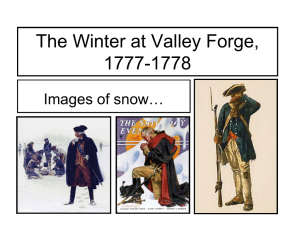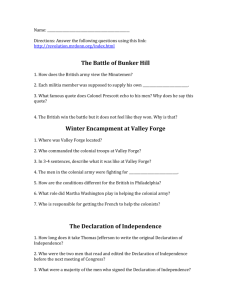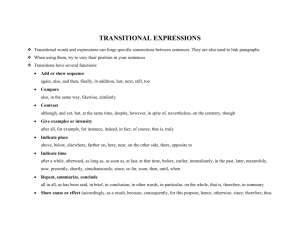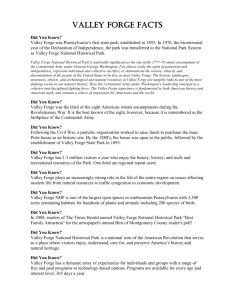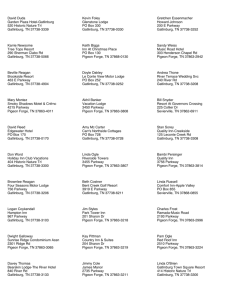Poem - Home | ddebarra
advertisement
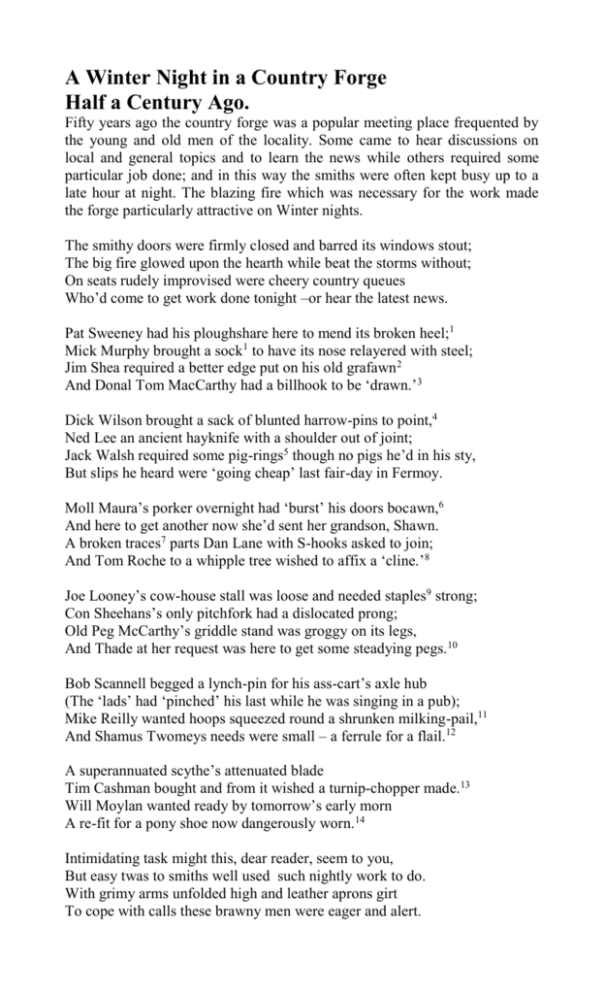
A Winter Night in a Country Forge Half a Century Ago. Fifty years ago the country forge was a popular meeting place frequented by the young and old men of the locality. Some came to hear discussions on local and general topics and to learn the news while others required some particular job done; and in this way the smiths were often kept busy up to a late hour at night. The blazing fire which was necessary for the work made the forge particularly attractive on Winter nights. The smithy doors were firmly closed and barred its windows stout; The big fire glowed upon the hearth while beat the storms without; On seats rudely improvised were cheery country queues Who’d come to get work done tonight –or hear the latest news. Pat Sweeney had his ploughshare here to mend its broken heel;1 Mick Murphy brought a sock1 to have its nose relayered with steel; Jim Shea required a better edge put on his old grafawn 2 And Donal Tom MacCarthy had a billhook to be ‘drawn.’3 Dick Wilson brought a sack of blunted harrow-pins to point,4 Ned Lee an ancient hayknife with a shoulder out of joint; Jack Walsh required some pig-rings5 though no pigs he’d in his sty, But slips he heard were ‘going cheap’ last fair-day in Fermoy. Moll Maura’s porker overnight had ‘burst’ his doors bocawn,6 And here to get another now she’d sent her grandson, Shawn. A broken traces7 parts Dan Lane with S-hooks asked to join; And Tom Roche to a whipple tree wished to affix a ‘cline.’8 Joe Looney’s cow-house stall was loose and needed staples9 strong; Con Sheehans’s only pitchfork had a dislocated prong; Old Peg McCarthy’s griddle stand was groggy on its legs, And Thade at her request was here to get some steadying pegs. 10 Bob Scannell begged a lynch-pin for his ass-cart’s axle hub (The ‘lads’ had ‘pinched’ his last while he was singing in a pub); Mike Reilly wanted hoops squeezed round a shrunken milking-pail,11 And Shamus Twomeys needs were small – a ferrule for a flail.12 A superannuated scythe’s attenuated blade Tim Cashman bought and from it wished a turnip-chopper made.13 Will Moylan wanted ready by tomorrow’s early morn A re-fit for a pony shoe now dangerously worn.14 Intimidating task might this, dear reader, seem to you, But easy twas to smiths well used such nightly work to do. With grimy arms unfolded high and leather aprons girt To cope with calls these brawny men were eager and alert. And while, by hands alternate plied, the mighty bellows roared, 15 The flames, with coal unstinted fed, high up the chimney soared. The hammers beat, the anvils rang, the showering sparks flew off, And cooling irons hissed aloud in the cold water trough. 16 Nor when the clients work was done did each in turn depart; ‘Twas good to share the radiant heat shed by the glowing hearth, And each his seat, how rude soe’er, would closely hug and hold To hear and join in latest tales and stories yet untold. The ‘matches’ in the making for the fast approaching ‘Shrove’, 17 The recent rows of housewives in the village ‘Cross’ above; ‘Pishogues’ that late of Manley’s pigs were taking a heavy toll,18 The latest midnight digging of Montstown Money Hole.19 The ghost at Cúinn na Spride that Tom Morrisson had seen When coming at the small hours from Rob Tobin’s wake he’d been 20 The plans to thwart the U. H. C. when next in Knockeen brake,21 Dan Crowley’s ‘cottage christening’22 and Kate Moore’s ‘American Wake.’23 And, lightened by such tales as these, as such tales well have power, The work went on within the forge till bed-time claimed its hour When died the fire, the hammers ceased, and out into the night The crowds went off with new-lit pipes to scatter left and right. In those far days, but simple were the joys our peasants sought. We’ve since advanced and other times have other standards brought; Instead of meeting-place within a smithy’s sooty walls We now have ‘Pictures,’ concert rooms and garish dancing halls. And yet for which; those met within the humble forge that night, Or those whom great luxurious halls with pleasures now delight, For which did Life more purpose hold, to which give truer zest? And which with more contented hearts were all more truly blest? On which the more benignantly did kindly slumber smile? And which more equably resumed the morrows’s tasks and toil? To which did home and fireside ties the tend’rest lessons teach? In fine of both which happier were? Kind readers, answer, which? * The notes which accompanied this poem originally have been expanded somewhat and are now included in the appendix. Appendix In 1982 Patrick Barry`s son Liam planned to issue an edited version of the works that comprise this volume. In the event, only a very small number of the new edition were produced and these were circulated, only among his family. For the purpose of his edition Liam wrote some additional notes, mostly to explain the circumstances in which the original item was written, but in a few cases the notes expanded substantially on the original. Liam’s note in respect of this item is as follows: A Winter Night in a Country Forge. Up to the early decades of this (20th) century the forge was very much part of the Irish rural scene. Here the blacksmith was engaged in making or fitting shoes for horses, ponies and kindred animals, or perhaps re-fitting them or inserting frost nails in them when the roads became slippery in frosty weather. But the smith was frequently called on to do a range of other jobs. He had to act at times as the local tinsmith, steel fabricator, machinery repairer and general engineer. In those times the forge was usually open until late hours at night. And many of the neighbours, after finishing their work and having an evening meal, converged on the forge, if only for a chat - or to listen to the chat. It was usually a warm spot and that made it inviting in cold weather. A large open fire was needed for the work there, to raise the temperature of the metal so that it could be moulded more easily. The rural community then, could not afford to spend nightly sessions in the pubs. Other community centres or halls were scarce; and the newspaper was also a rarity in the homes, even before the introduction of radio or television. So it was understandable that the forge had its attractions. This poem indicates some of the jobs done by the smith, apart from attending to the shoeing end of the work. Reference is made to matters that may be strange to those who have not had experience of a country forge -- now a fast growing majority. . The following explanatory notes, have been expanded from those which accompanied the original version of the poem;1. The heel and sock of the plough were parts which could be re-conditioned by the smith 2. A grafawn was a tool used for breaking up manure and turning it over, in the field. It was used for other jobs also. 3. A billhook to be drawn. Billhooks, scythes and such implements were “drawn” to give them a finer edge. The operation was performed with a crawneen (corráinín), -- a curved piece of steel about six inches in length, highly tempered and keenly edged. The article to be “drawn” was securely fixed. The operator then drew the crawneen along the blade parallel to the edge and close to it. Chips and strips of metal were in this way taken off. When the surface was sufficiently thin a smoother edge was obtained with a cláirín or sandboard, as at present. 4. Harrow pins are fixed steel pieces of the harrow which help to break the sods and clumps of earth. 5. Pig-rings were fixed to the snout of pigs , kept out-doors, to prevent them rooting in the soil. Slips and porkers were names for pigs at different stages of maturity. 6. A bocawn was an angular iron hinge. 7. Traces are chains used as part of the tackling for a horse. 8. “Cline” (Cloidhn) A band of iron round the ends of a whipple tree to which the drafting traces are attached. The whole device then prevented the chains from chaffing the horse 9. Staples of standard size were available in the shops but extra strong ones were specially made by the smith. 10. Griddle stand, a tripod that stood over the open fire to support a griddle or open bastable 11. Hoops of iron were used to retain the staves of wooden buckets and needed to be tightened occasionally. Country smiths were often asked to do the work that properly appertained to tradesmen. In this way they often incurred the hostility of the latter, particularly the tinker class. 12. A ferule for a flail protected its ends from splitting 13. Redundant scythe blades could be converted by the smith into a tool for chopping turnips. 14. An animal’s shoes and hooves benefited on occasion from some treatment at the forge, easing the pressure on the hooves. 15. The fixed bellows were blown by pulling down its upper handle and a special type of coal was used in the forge fire. 16. After an item had been fired it was thrown in a water trough to cool it; and the regular immersion of such items gave rise to a characteristic hissing noise. 17. Matches in the Making: Shrove, from January 6th to Ash Wednesday , was a special time for weddings. Matchmaking was actively carried on for some months previous to this. 18. Pishogues were evil practices with which certain people were credited, whereby they could transfer to their neighbours stock any ill-luck or sickness that might attend their own. Such people are supposed to be able, in some occult manner to acquire their neighbour’s dairy produce. 19. Montstown Money Hole: Digging for money at night on the strength of dreams was of frequent occurance fifty years ago. The writer knows where several such diggings took place. One particular place in the area was subjected to no less than four such operations. (See the story on page 100) 20. Cuinn na Spride: The ghosts corner, a spot in the locality believed to be haunted. 21. Plans to thwart the U.H.C. In the early eighteen eighties many persons were imprisoned under the Coercion Acts. In retaliation the peasantry sometimes resolved to stop fox-hunting, the followers of which were largely believed to be in sympathy with the Government’s action. One such interference took place with violence in Knockeen brake on the confines of Leamlara and Watergrasshill. (U.H.C. = Union Hunt Club) 22. Cottage Christening. In the eighties and nineties large numbers of labourers’ cottages were erected by the Rural District Councils of the time. On moving into these the labourers often gave a “blow out,” known as a Cottage Christening. 23. American Wake. Emigration to America at this time was unhindered and on a very large scale. The intending emigrant, on the last night at home often had numbers of invited friends and neighbours around him (or her). This gathering was known as an “American Wake”. It was however of a festive character.

